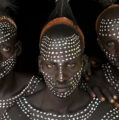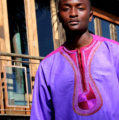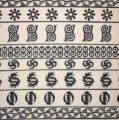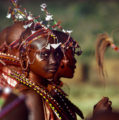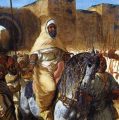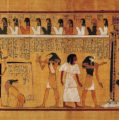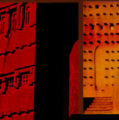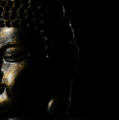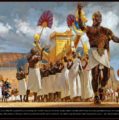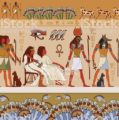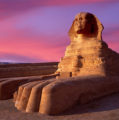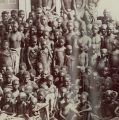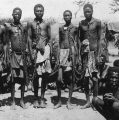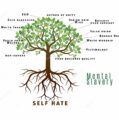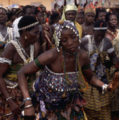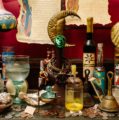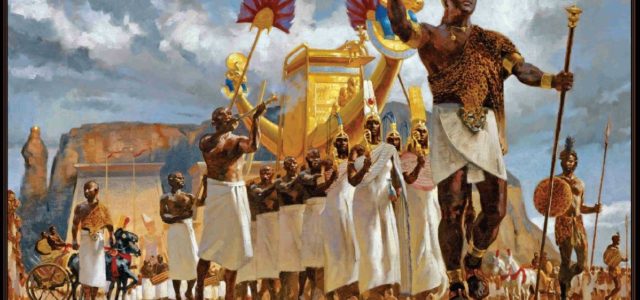
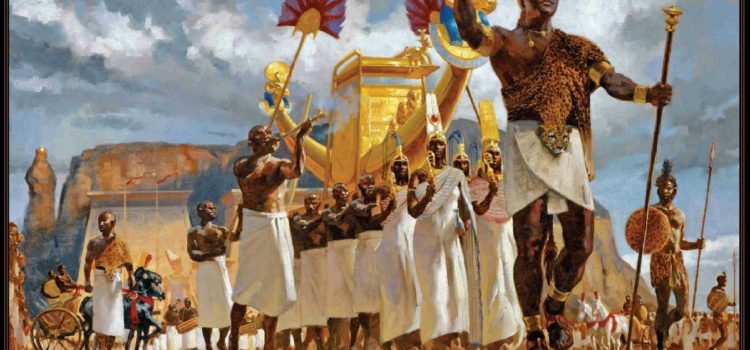
Race in Ancient Egypt: Black Pharaohs?
HistoryIdentity August 27, 2015 Alik Shahadah

See also African Race and Moors
History is mostly guessing; the rest is prejudice —William James Durant
Race in Ancient Egypt is one of the most polarized ongoing historical debates. But very few give the discussion a progressive treatment. And any treatment of this contentious discussion must discuss contemporary politics, racism, and sociology. Almost all debates fail to address the historical reality of thousands of years ago without contaminating it with our 21st-century race-politics. How do we discuss the ancient world with modern race concepts? So discussing race in antiquity is anachronistic because these concepts did not exist to anyone back then. And while some might offer up the position that an African is an African, just note that there is no transhistorical definition of African. Even today it has in variations depending upon which group you study. To use the word “black” or ‘Black African’ is even more ridiculous, so most of the discussion is around sub-Saharan ancestry. For all the positions presented it is shocking that a more realistic possibility is that Ancient Egypt, like modern New York, was a shifting demographic, with admixture and different “races” from the region. So anyone doing DNA test on one period would not be getting the full picture of that demographic 1000 years before. Which population in history has been static for over 3000 years? Let alone a part of the world visited by so many different groups. Even today, London of the Windrush and London of 2022 is radically different. So why would ALL Ancient Egyptians be so monolithic over such an extensive-time period?
As people of African descent and others assert their definitions of self in an effort to create a national consciousness, European academia belittles these efforts as juvenile and unnecessary–Marimba Ani
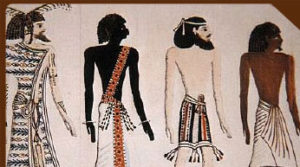
Egyptian depiction of different Ethnic groups1)But a race in the modern context can be made up of many different ethnic groups. All the people in Ethiopia belong to the same African race, yet look how different they look from each other
Everyone wants to claim something great, we all want to have a connection to the greatness of the ancients. But from a modern historical point-of-view, there is a problem. Because in the last 500 years Europeans have maintained and promoted the racist canard of David Hume; that Africa is a place without invention and civilization. So if Ancient Egyptians are of the African race it would destroy the myth that Africans were only good for sex, dancing, and manual labor.
But if all Africans want to do is claim the Ancients were African and then sit down and live in opposition to everything that made the Ancient Egyptians great then we might as well stop reading this article and not worry about anything. Because if the Egyptians were great builders, and people are content not to build or do anything that the Egyptians do then what are we claiming? Because many people are cool with putting an Ancient Egypt Ank on their social media, but then everything they do beyond that is in stark opposition to any of the legacy of the Ancients.
You cannot be creators of the first civilizations and be sub-human. Europeans on the other hand would do well from claiming Egypt because it would prove their historical superiority beyond civilizations like Greece. It would also help to protect their mythology that Africans were only semi-savages, a people without history and invention, and thus histories workforce.
Victory has a hundred fathers and defeat is an orphan –JFK 2)This quote was made popular by JFK but Tacitus, Agricola 27:1 (written ~ 98AD)
victory is claimed by all, failure to one alone. In 1942, the Italian Diplomat, Count Galezzo Ciano (Mussolini’s son-in-law) was almost certainly quoting a local proverb when he said: La victoria trova cento padri, a nessuno vuole riconoscere l’insuccess
Despite the new wave of myths regarding Nubia and Kemet (Ancient Egypt), It is clear that Kemet and Nubia were neighboring African Civilizations just as Aksum and Nubia. The difference doesn’t mean Nubia was a ‘black race’ and Kemet wasn’t. Both groups were ethnic groups of indigenous African origin.3)We will have to stress this word because it is very important The ethnic differences were even less than Amhara and Gambella people. Yet no one today is suggesting that the dark skin people of Gambella are African while the Amhara are not. But just like no one African American 4)Forced Diasporais claiming Zulu or Somali ancestry we cannot claim Ancient Egyptian ancestry just because we decided to classify them as the same sociological construction as ourselves. White artists can reconstruct Tut’s face to look like their fancies. Let me have a go at it and I bet when I am finished he looks like me.
SKIN COLOR IRRELEVANT
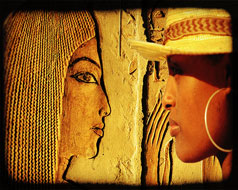
Ancient Egyptians looked like Ethiopic people
The first nonsense that must be challenged and laid to waste is any focus on skin color. Some YouTube-styled arguments suggest “Ancient Egypts were not black, they were brown.” Skin color and race are not interchangeable, hence why the word African is better than the word black (which is a color)–not a race. Being 100% African is not dependant on being pitch black in color–that is a Eurocentric condition imposed at the moment of their conquest of the African mind. And Africa’s diversity of features stands as testimony to this fact.
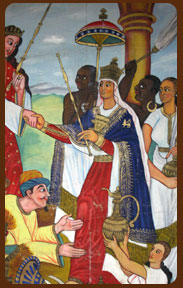
Color variation in ET
Right now you can find dark skin Ethiopians, much darker than South African Zulus and you can find light-skin Ethiopians lighter than most Arabs. You can also find many Xhosa people lighter in complexion than most Indians. Skin color among African people is and always has been highly varied. So it is ridiculous to enter that into a debate about race in antiquity when everything in reality shows that Africans are not black in color. It has also been suggested, as can be seen from the paintings of Ancient Egypt, that they depicted their colors as black, white, and brown without discrimination. Maybe color for them had another meaning.
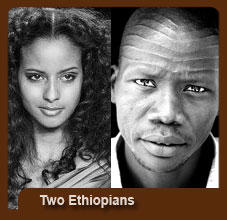
Many different types of Native African types
The salient reality is that no one can deny the historical truism that the Greeks (the world’s first Europeans) went to ancient Kemet to study at the Temple of Waset (later called Thebes by the Gree
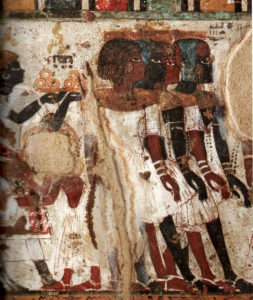
Nubian Wall Painting
ks and Luxor by the Arabs).In his magnum opus, A Lost Tradition:
African Philosophy in World History, (1995) Dr. Theophile Obenga quotes Aristotle ranking Egypt as “the most ancient archeological reserve in the world” and “that is how the Egyptians, whom we (Greeks) considered as the most ancient of the human race” (p. 45).
Note: Recent DNA testing of the Amarna mummies (King Tutankhamun and his relatives) indicates that they inherited their genetic material overwhelmingly from African populations in the Great Lakes of East Africa, tropical West Africa, and Southern Africa. These regional matches do not necessarily indicate an exclusively African ancestry for the Amarna pharaonic family.
DNA
Due to lack of knowledge on this subject, we have previously left this discussion to specialists which are referenced. But the popular mainstream opinion is summed up as:
Schuenemann et al.1 seemingly suggest, based largely on the results of an ancient DNA study of later period remains from northern Egypt, that the ‘ancient Egyptians’ (AE) as an entity came from Asia (the Near East, NE), and that modern Egyptians “received additional sub-Saharan African (SSA) admixtures in recent times” after the latest period of the pharaonic era due to the “trans-Saharan slave trade and Islamic expansion.5)Ancient Egyptian Genomes from northern Egypt: Further discussion
So according to this research, the more recent populations of modern Egypt have 8% sub-Saharan DNA, which is way more than Ancient Egyptians. 6)DNA discovery reveals genetic history of ancient Egyptians What will the Afrocentric world do with itself now? There is so much investment in race and Egypt and so much “black” pride is perched on the outcome being 100% black! You see the thing about DNA it is not as subjective as skin color or facial features or hair texture. As one detractor of African history stated, many groups fit the description of “Dark skin with woolly hair.’ S. O. Y. Keita and some others bring a challenge to this research, The alternative interpretations involve three major considerations:
1) sampling and methodology, 2) historiography and 3) definitions as they relate to populations, origins and evolution
We will only, for brevity focus on the most notable objections:7)Ancient Egyptian Genomes from northern Egypt: Further discussion
- The timeline is not representative of AE history ~ 3,000 years is missing (e.g.
Predynastic, Early Dynastic, Old Kingdom, Middle Kingdom - The whole genome sample size is too small (n=3) to accurately permit a discussion of
all Egyptian population history from north to south - The authors do not consider explanations based on historical narrative, although they
present historical information. NE input in AE could also be explained by old
mercantile relationships with Lower Egypt (e.g. Maadi-Buto complex ~4,000 BC3
), Egyptianized Asiatic rulers and migrants (e.g. Hyksos ~1,650 BC), NE prisoners of war
(e.g. from Thutmose III’s military campaign in NE ~ 1,490 BC), from diplomatic
marriages2 (e.g. Amenhotep III and Mitanni princess, Gilukhipa ~ 1,380 BC), etc. - Schuenemann et al.1 seem to implicitly suggest that only SSA equals Africa and that there
are no interconnections between the various regions of Africa not rooted in the slave trade,
a favorite trope. It has to be noted too that that in the Islamic armies that entered Egypt that
there were a notable number of eastern Africans. It is not clear why there is an emphasis on
‘sub-Saharan’ when no Saharan or supra-Saharan population samples–empirical or
modeled are considered; furthermore, there is no one way to be “sub-Saharan.”
The last point deals with “What does it mean to be African” but I think this point is problematic if I understand what the author is saying. And it is problematic because we will have to fix a definition and live or die by it. I doubt, in all seriousness, you can be “African” without including Sub-Saharan DNA as a large component of that definition. Because we open a door that seems to favor bending definitions which way to keep a hold of Ancient Egypt in the face of research we do not like. No one here likes what that research is trying to say. It is just like a court case when after all the evidence (eye witness, forensic, virtual recreations, blood splatter evidence, oral testimony, microbiology) they test the DNA and the rape kit screams your name–it means game over mate. It would be disingenuous to claim to be progressive and trained critical thinkers and then not present the current debate as it stands.
EUROCENTRIC REVISIONIST
Some of us are taken in by the new “Eurocentric” lies. When Nat Geo released the Black Pharaohs some of us went crazy with joy screaming FINALLY they are telling the TRUTH. No! They are just telling better lies. First things
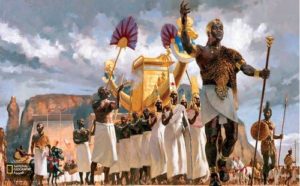
Painted by European revisionist
and we been telling you but not everyone gets it, there are no BLACK Pharaohs or BLACK anything in Africa. They are only African people! (aka you and me). So when Nat Geo is telling you about some Black Pharaohs you have to ask, So what color are the other ones? Exactly. Ancient Egypt is an African civilization full stop. Maybe as time progressed it became less homologous as Hyksos, Persian, Romans, Greeks and later Arabs settled, but it is at heart an African civilizations. This black thing is another lie to remove Ancient Egypt from Africa.and ask yourself have you ever heard of white kings of Greece?
And the person doing the cover art for National Geographic is probably a white person who drew the cover art.

Same Ethnic group (Zulu) yet look different
Because people in that region do not look like that and they do they wear those clothes– That maybe Southern Africa or something. So it is a game. The people of Upper Egypt (lower for us today) and what is now Sudan looked like Ethiopians, they were the same African people. Just like Ethiopians and Somali are the same — yet different. And sameness is not so subjective that we can say “Oh no one knows what race the Ancient Egyptians are”, because we know they were not Aryan, or Chinese, do the discussion of Egyptian race is confined between dark-skinned races/groups.
RACE IN ANCIENT EGYPT
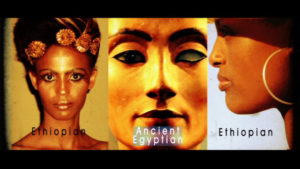
Ethiopians and Ancient Egyptians looked similar
Race in Ancient Egypt is political, there is no such thing as a trans-historical African identity. [1][2] Therefore, in Africa’s ancient history the term ‘African’ as an identity would have had no meaning; people defined themselves as members of kingdoms, religions, and ethnic groups. [1] However, these identities were still of people in the continent we call Africa.[2] ‘The people of Africa is more than a name, it is linked to indigenous rights and issues of sovereignty. Africaness and skin color are not verification of each other.
‘Blackness’ fails at every level in both the historical and political context. Africans are the natural people of Africa: The diverse hair textures, the diverse skin hues, are all specific adaptations to living in the diverse African landscape. For this reason alone ‘skin blackness” is certainly not a marker for African identity; far too many native Africans, depending on geography, have light skin. The Motherland of these adaptations and the cultures are primarily Africa; hence the relevance of the name. [2] ‘African’ refers exclusively to the historical people of Africa and their descendants in the Diaspora.In plain language, no one is an African unless they can also be considered a ‘Black’ person. But not every ‘Black person’ is an African.
SUBJECTIVE
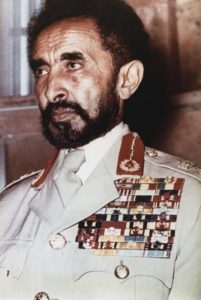 Race is a social construction very new in human history and it is like beauty–in the eyes of the beholders. Not all Africans have tightly curly hair, and most do not have jet black skin. And we need to start there by discussing the genetic and physiological diversity of African people.
Race is a social construction very new in human history and it is like beauty–in the eyes of the beholders. Not all Africans have tightly curly hair, and most do not have jet black skin. And we need to start there by discussing the genetic and physiological diversity of African people.
It is very interesting to hear the opponents of Egyptians being African restrict themselves to one type of African look. Extremely strange when we have a world for all to see of total diversity; from very light skin, to very dark skin, all representing the African race profile. So why exclude Ancient Egyptians when they clearly look African enough to fall safely within the African diverse phenotype? Or will they rewrite history 4000 years from now and say the Haile Selassie was not “black” based upon his skull shape and light skin? Will he at some future date be assigned to the Arab race?
Well, what is happening in the Ancient Egyptian race debate is the very same thing. Discounting African diversity, handpicking one archetypal African group (say Wolof people) and making that group the definition of what it means to really be African. But Diop discussed this, and it is strange that Africans, unlike everyone else, have their race biased determined from outside. No one does this with Indians regardless of if they are jet black, or pale with green eyes.
SUB-SAHARAN?
Repeat: People are very limited in their understanding. Imagine thinking Black people means Black skin. And we have TV to see African skin color variation. Even when Ethiopians in antiquity depicted their southern neighbors they painted them darker while they painted themselves light brown. But South Africans painting people from Senegal would do the same. None of this is evidence that we are discussing two different races, more so two different “tribes”.
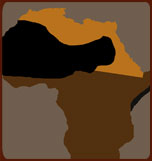
Defined by what?
Sub-Saharan? When did that classification come about? So the people in Somalia are sub-Saharan but do they look anything like people from Malawi or Congo. Then what are the properties of this so-called Sub-Saharan race that excludes North Africa in antiquity? The people of Darfur are not Sub-Saharan yet they are darker than people from South Africa (because of climate not because of Sub or non-Sub Africa). It is stupid that people who went to school could be so ignorant to think that Africans are trapped below the Sahara. So now they suggest two different races based upon a desert belt. Sub-Saharan was a Eurocentric invention in recent years to try to separate and create a dichotomy between the Motherland. Because while today we have an Arab North and a non-Arab South that does not force us to accept a Sub-Sahara in antiquity. No more than we accept South Africa as Southern Europe just because some colonizers set up homes there in recent times.
Last time I checked Egypt extended from the North of Africa going down deeper into Africa. But yet it is not African. Ethiopia is 22km from Arabia, with the same identical relationships to the Middle East more so than to South Africa, so that must also not be Africa. This is in response to the claim that Ancient Egypt was a Mediterranean culture. Somalia has a relationship with Arabia more So than Congo. So again that must not be Africa. Mali and Niger have a relationship to the Berber north way more than the Southern forested region so that must also mean it is outside of Africa.
CLAIMING THE PAST
From one point of view, South Africans cannot boast about building Axum, KMT, or Timbuktu, because they, as a group, played no role in it. The only ‘race” in Ancient Egypt that built the pyramids was the Ancient Egyptians themselves. This is a valid argument, but we have to consider other things also. It is human nature to take claim of the achievements of the past. All Africans lay claim to KMT, Axum, Timbuktu, Great Zimbabwe, etc, as part of our racial contribution to the world. It actually does not matter if anyone in the Diaspora or South Africa has direct Ethiopian or Ancient Egyptian blood because what the claim is saying, is that people of African ancestry, or people who “look like us,” have within them the capability to produce great works. And we need to be very clear on this point. Most of us are not Ancient Egyptians and have no ancestry there.
And if it was ever about a direct claim, then no one can claim anything. With Greece there is no direct connection to British Empire — yet it is all still culturally/academically the history of Eurasia. All of Europe talks about a connected European history. There are homages to this pan-European history all over Europe; it is embedded in the education system. But does Newton represent the average Brit? Certainly not, then why would they stretch and claim Aristotle as part of European genius?
If we cannot stretch and claim Imhotep? At one level of argument on Only Einstein should claim E=Mc2. The majority of the people are never the great innovators of history. Yet the majority of the Romans claim the work of the few genius Romans, the accomplishments of a few Aksumites become the claim of all Ethiopians. If we want to put a fine point on it, we could counter-argue that because the people of modern Ethiopia have changed since the time of the great Abyssinian empires, then most of them cannot claim that history under the modern national set-up of “Ethiopian.” So the Oromo people cannot lay claim to Lalibela. And then where do we draw the line? And there is a line, but it is blurred.

China starts work on Horn of Africa military base in Djibouti, defense ministry confirms
Ancient Egyptians also did not have the same challenges as us. And I doubt that if brought back to life right now would smile and run and hug someone from Ghana or Nigeria and say “My Brother.” We have agency and identity issues–they did not. They depended on their genius for everything they needed to survive while most of us depend on White and Asians for ours. They were nation builders, we have our nations built for us by the Chinese.
It is possible to argue that all Muslim accomplishments can be claimed by Muslims because of the shared Islamic ideological connection, just like the recent accomplishments of Japan may be claimed by modern Japanese. In other words, we are finding some sphere of commonality (political, ideological, social, etc) to show that those things allow them to make a connection. Jews do this all the time when they say Jewish inventors, or Jewish Nobel Peace Prize winners. And all connections are valid at some level. This is the way human beings forge their identities on the great works of the past, to inspire them to build anew.
CONCLUSION

Nubians today in Egypt
Race in Ancient Egypt will continue to be a hot topic for a long time to come. But it mostly remains a hot topic with no end in sight because of the polarization and lack of scholarship involved in those discussions. With one side saying “EGYPTIANS WERE BLACK” and another group stating the opposite–like a religious debate. No new information or any new paradigm shifts will alter that discussion for most. For the few that want to advance this discussion and moreover make it relevant to what it means in our contemporary moment the great issue of race in Ancient Egypt then we will proceed to look to the past to draw strength for the future. If we Africans are truly the great builders of Giza, then let us continue to build in the best traditions of our ancestors.
DEEPER READING
References
| ↑1 | But a race in the modern context can be made up of many different ethnic groups. All the people in Ethiopia belong to the same African race, yet look how different they look from each other |
|---|---|
| ↑2 | This quote was made popular by JFK but Tacitus, Agricola 27:1 (written ~ 98AD) victory is claimed by all, failure to one alone. In 1942, the Italian Diplomat, Count Galezzo Ciano (Mussolini’s son-in-law) was almost certainly quoting a local proverb when he said: La victoria trova cento padri, a nessuno vuole riconoscere l’insuccess |
| ↑3 | We will have to stress this word because it is very important |
| ↑4 | Forced Diaspora |
| ↑5, ↑7 | Ancient Egyptian Genomes from northern Egypt: Further discussion |
| ↑6 | DNA discovery reveals genetic history of ancient Egyptians |











